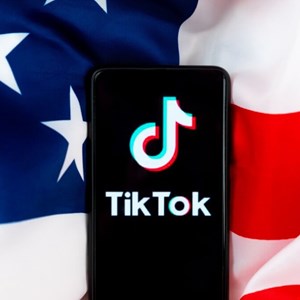The US House of Representatives on Wednesday approved a bill requiring ByteDance, the parent company of TikTok, to divest the social media platform or face a total ban in the United States.
The vote was marked by a landslide victory, with 352 members of Congress supporting the bill while only 65 opposed it.
The bill, fast-tracked for a vote after unanimous approval by a committee, gives China-based ByteDance 165 days to disassociate itself from TikTok. Failure to do so would result in app stores, including the Apple App Store and Google Play, being legally barred from hosting TikTok or providing web hosting services to apps controlled by ByteDance.
“The TikTok platform has two sides: content generation and consumption,” commented Narayana Pappu, CEO of Zendata.
“A significant portion of TikTok content generation comes from outside the United States, which in turn drives consumption/engagement in the United States and attracts the audience that businesses can target. This is where the biggest impact will be, even if ByteDance sells its business to a US buyer and transfers algorithms and existing user data.
TikTok CEO Shou Zi Chew expressed disappointment over the news and vowed to protect the platform through legal means. Chew highlighted TikTok’s efforts to protect user data and maintain its independence from outside influences.
However, critics say the bill consolidates the power of existing social media giants and puts American jobs at risk. Despite TikTok’s data security guarantees, concerns persist about potential influence from the Chinese government.
While the bill remains uncertain in the Senate, with some Democrats expressing reservations, the White House has I approved it, citing national security imperatives. Supporters clarify that the legislation does not mean a ban but is intended to incentivize ByteDance to sell TikTok, ensuring its continued operation in the United States.
“The House’s passage of the bill follows the Executive Order to protect sensitive data from countries of concern. However, this ban goes even further,” explained Claude Mandy, chief data security evangelist at Symmetry systems.
“The narrative that this will help combat the influence of hostile foreign actors on social media fails to recognize that this is happening on all social media platforms, regardless of enforcement control. The focus on controlling the entire application also ignores the hard truth that application code developed by ByteDance (as an example) is widely used and adopted in other applications not controlled by ByteDance .
As the legislative process unfolds, the fate of TikTok hangs in the balance, with implications for the broader landscape of social media governance.
Image credit: Luiza Kamalova / Shutterstock.com

